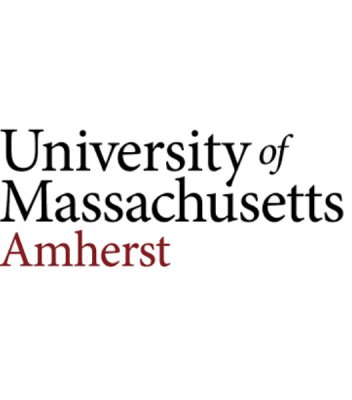Nilanjana Buju Dasgupta
Provost Professor of Psychological and Brain Sciences and Director of the Institute of Diversity Sciences University of Massachusetts Amherst
- Amherst MA
Nilanjana "Buju" Dasgupta studies how implicit or unconscious bias influences people’s first impressions and behavior toward others.

University of Massachusetts Amherst
View more experts managed by University of Massachusetts Amherst
Expertise
Biography
Her research spotlights how implicit bias influences people’s first impressions and behavior toward others, as well as how implicit stereotypes influence individuals’ own academic and professional choices.
Dasgupta is particularly interested in identifying solutions that remedy implicit bias. Her recent research identifies solutions that can reduce the impact of implicit bias on gender gaps in science, technology, engineering and mathematics (STEM) education and career opportunities thereby closing gender gaps iand broadening participation of diverse individuals in STEM.
Social Media
Education
Yale University
Ph.D.
Social Psychology
Yale University
M.Phil
Social Psychology
Yale University
M.S.
Social Psychology
Smith College
A.B.
Psychology
Select Recent Media Coverage
Better Known: Nilanjana Dasgupta
Better Known podcast online
2025-01-05
Nilanjana (Buju) Dasgupta, director of faculty equity and inclusion at UMass Amherst, discusses her new book, “Change the Wallpaper,” which “reveals how to nudge local cultures toward positive structural change by moving people from individual action to collective action.”
Why a ‘near peer’ can be the best kind of mentor
The Boston Globe Magazine online
2022-10-28
A girl who wants to build a business or design a skyscraper shouldn’t find her goal harder to reach than a boy with the same ambitions. A society that values equality shouldn’t allow half of its population to be vastly underrepresented in the highest levels and fastest growing sectors of its workforce, says Nilanjana Dasgupta, principal investigator of the Implicit Social Cognition Lab at UMass Amherst. “We should care because, to the extent that we believe in equal opportunity for all, making sure that the people in this country are represented in the careers of the present and the future is the right thing to do,” she says.
How to Get More Women Into Technology
The Wall Street Journal print
2021-06-01
Nilanjana Dasgupta is quoted in an article about efforts to draw more women into STEM fields, and the obstacles they face. “The obstacles are not about ability,” she says. “It’s more about there are some things that are impeding girls’ interest and confidence that they’re good at it.”

Select Publications
What the U.S. Presidential Election Results Tell Us
Psychology TodayNilanjana Dasgupta
2025-01-20
Nilanjana Dasgupta writes that the results of the November election show that Americans of different income levels and social classes don’t understand each other. “If we want to change our country for the better, we need to step out of our bubbles and walk into new local spaces where we mix with people who are different from us,” she says.
Change the Wallpaper: Transforming Cultural Patterns to Build More Just Communities
BOOK: Yale University PressNilanjana Dasgupta
2025-01-07
A social psychologist reveals how to nudge local cultures toward positive structural change by moving people from individual action to collective action.
Neither liberal nor conservative approaches to racism work — this science-based solution is better
The HillNilanjana Dasgupta
2024-12-15
Nilanjana Dasgupta writes that, “The standard antibias training and the conservative backlash to it form a bitter self-perpetuating cycle. These two approaches have an interesting similarity: both focus on individuals only and both underestimate the power of situations in shaping human behavior.”
To Make Science and Engineering More Diverse, Make Research Socially Relevant
Issues in Science and TechnologyNilanjana Dasgupta
2023-11-01
Imagine two high school science, technology, engineering, and mathematics—STEM—competitions: one where teams are challenged to build a hurdle-jumping robot, and one where teams build a robotic arm for people with disabilities. What differences might you expect? Not only will the materials and assessments differ, but more importantly, so will the people who choose to join one contest or the other.
Female peer mentors early in college have lasting positive impacts on female engineering students that persist beyond graduation
NatureDeborah J. Wu, Kelsey C. Thiem and Nilanjana Dasgupta
2022-11-11
Expanding the talent pipeline of students from underrepresented backgrounds in STEM has been a priority in the United States for decades. However, potential solutions to increase the number of such students in STEM academic pathways, measured using longitudinal randomized controlled trials in real-world contexts, have been limited.
How educators can enourage students to stay in STEM fields
Fast CompanyNilanjana Dasgupta
2021-09-21
First-generation college students are twice as likely to leave college without earning a bachelor’s degree than students whose parents have college degrees. My team and I combined a cocktail of ingredients to create a strong social vaccine to protect this group of young people.





